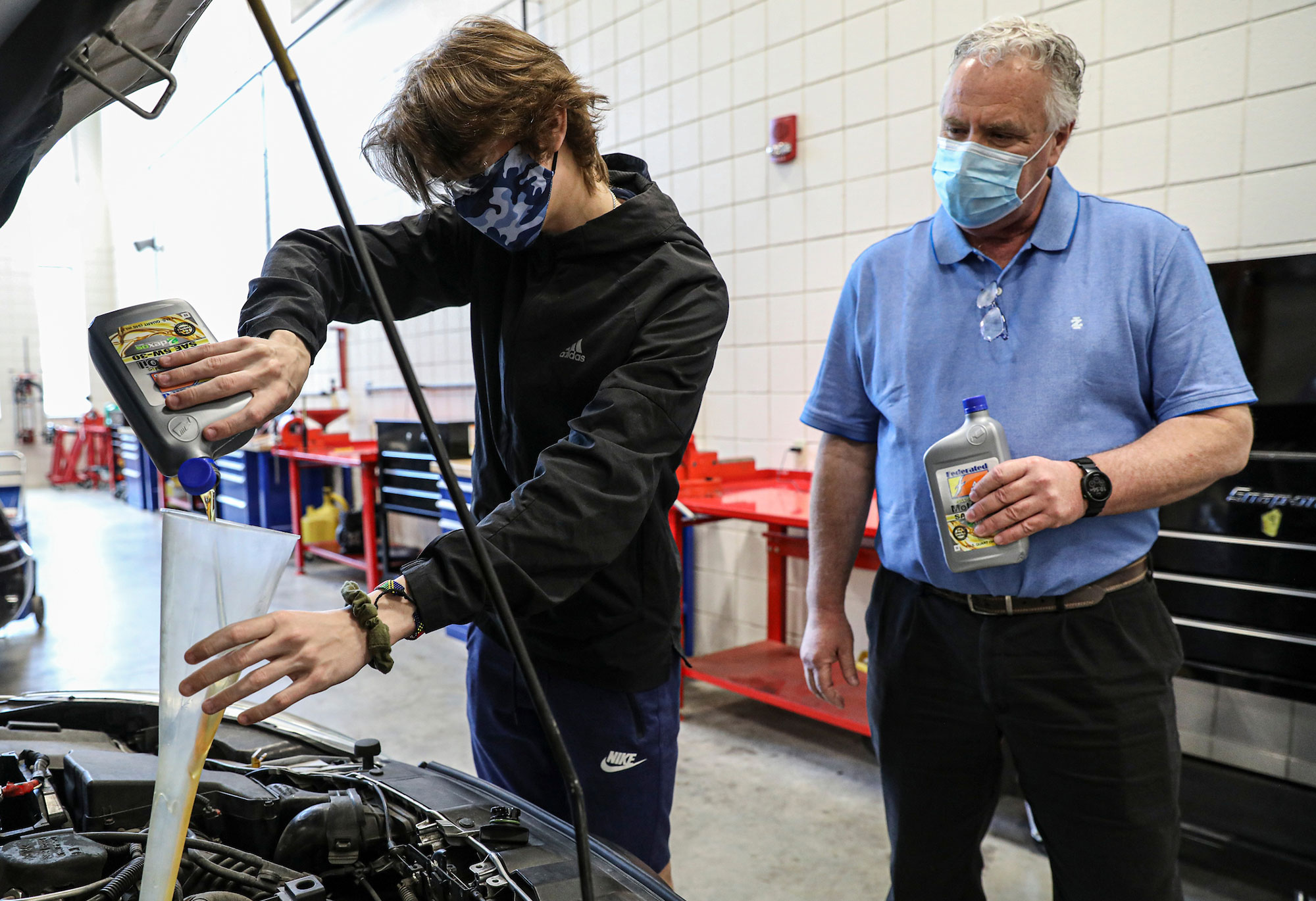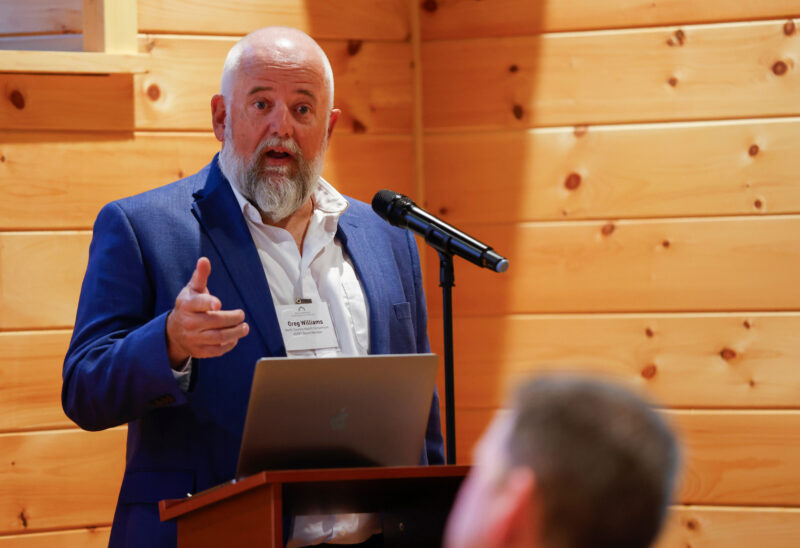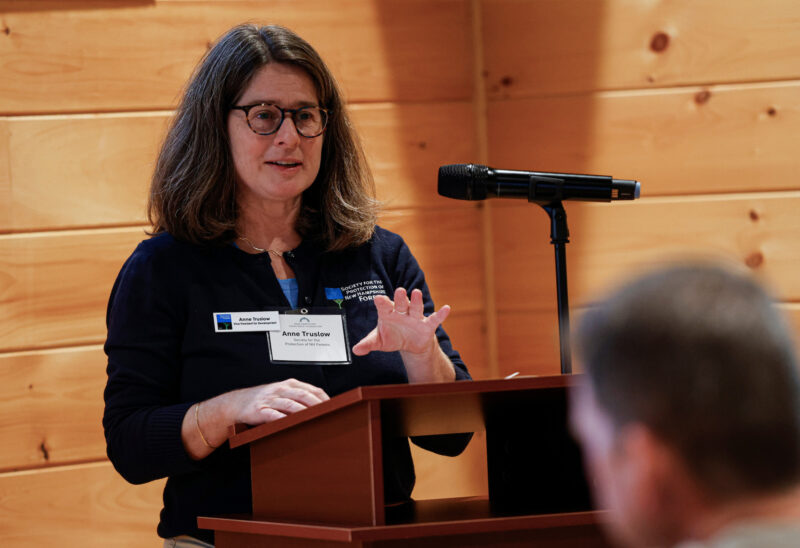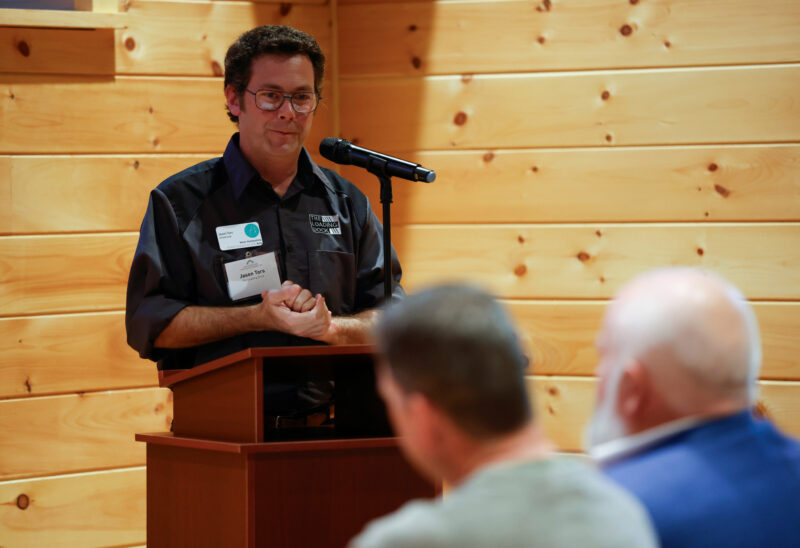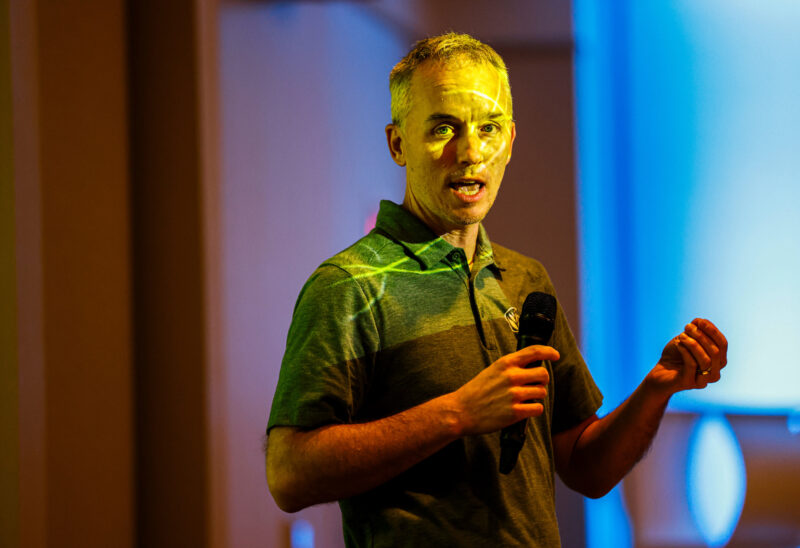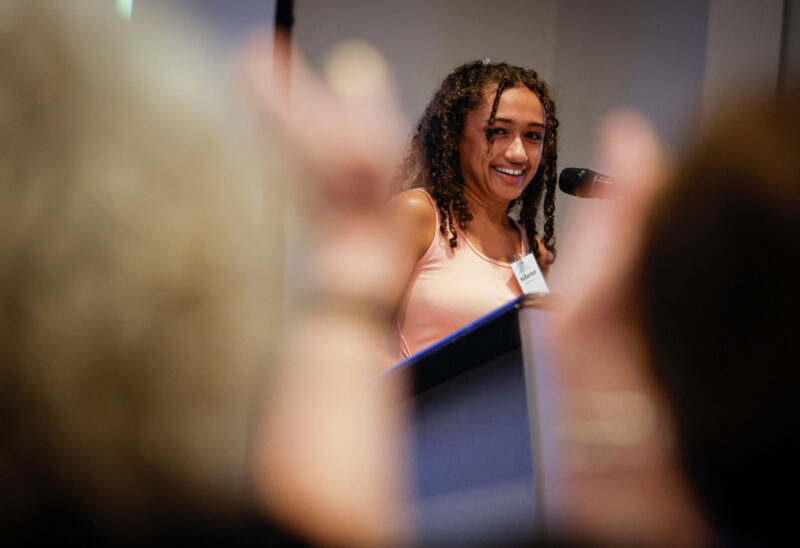Dover High School teacher Eric Schlapak has seen it too often — for many students, teachers and mechanically minded professionals, math just doesn’t add up.
As a college student, he worked in a paper mill and knew many smart co-workers who struggled applying math to their work. Decades later, as a teacher, one of his students was not engaged in math class but excited and totally immersed in his auto mechanics course.
“The auto teacher told me the student was going to go into automotive repair for a career, but he didn’t know his math — there was no connection between math in the classroom and math in the auto shop where it needed to be applied,” Schlapak said.
“That has really been in my brain since then: ‘What can I do,’” he said.
What he has done is develop methods to help Career and Technical Education (CTE) teachers connect the dots for their students between math concepts and career skills.
Schlapak will devote the next school year on applying math skills as recipient of the 2021 Christa McAuliffe Sabbatical from the New Hampshire Charitable Foundation. The sabbatical, created in 1986 in honor of the Concord High School teacher and astronaut, gives an exemplary New Hampshire teacher a year off with pay and a materials budget to bring a great educational idea to fruition.
Schlapak has taught at Dover High School since 2010. He hopes to help CTE students overcome math hurdles more quickly so they can spend more time on their career courses.
“In some programs, students will obtain a professional license before leaving high school,” he wrote in his sabbatical application. “However, there is an element of school that hangs like a black cloud over many of these students — math.”
Math matters, he said, in diagnosing auto problems, adjusting recipes in a culinary class, welding, carpentry, reading meters in electrical work – even in cosmetology, where geometry helps sculpt hairstyles.
“Math teaches logical thinking,” he said. “You are taking wholes and breaking them apart then taking parts and building up the whole. That’s why we want students to do math, even if they are not going to be an engineer or doctor.”
But, he acknowledges many math teachers have difficulty demonstrating the connection to talented CTE students and teachers who see math as a “bug bite that won’t go away.”
Schlapak will create lessons and online resources including videos, activities, worksheets and teaching suggestions.
“The lessons are not just a teacher standing at a board and droning on about how to use math,” he wrote in his sabbatical application. He envisions engaging presentations that are directly applicable to specific career programs and filmed in Career Tech labs or shops to help put the math in context.
He also will develop training for CTE educators and plans to be a math bridge between CTE programs and New Hampshire’s community colleges, where many students must take developmental math programs to help apply math to career courses.
Schlapak already has written a course with projects and lessons for Dover’s Career Tech Center. He looks forward to expanding the lessons statewide, with input from other CTE teachers.
“CTE teachers are very inspirational and they want to learn,” he said. “They are professionals in their trade, but the whole math piece sometimes scares them. So, it’s my job to break down some of those barriers for those who need it.”
Schlapak knows the Career Tech programs are valuable, because his own children benefitted.
His son, now a junior in engineering the Massachusetts Maritime Academy, took Dover’s auto repair program. “They inspired him to take things apart and put them back together,” he said.
His daughter is earning her graduate degree in nursing. “That all came from the health sciences program here.”
While in high school, Schlapak said math probably was his best class, but still, like many students, he hated it. Curiosity in the 70s and 80s about the Cold War led him to study European history and Russian studies at Bates College in Maine. His liberal arts education encouraged being well-rounded, so he maintained an interest in math as a newspaper editor, elementary school teacher, lawyer, writer and now, a high school teacher.
In his application, Schlapak wrote that his winding career path to the classroom makes him the right person to help pave different paths to math learning.
“Since I’ve re-entered the classroom … I’ve embraced opportunities to integrate with other high school teachers,” he wrote. “It is what I was meant to do.”
He hopes his partnerships will help lead promising students to their dream careers.
“There are close to two million skilled labor jobs that go unfilled each year that make $50,000 a year,” he said. “I’m hoping that my boosting math provides confidence, so kids can take advantage of those opportunities.”
To do so in McAuliffe’s name is special to Schlapak. He said an important stop on Washington field trips from a previous teaching position in New Hampshire was the Challenger Memorial at Arlington National Cemetery.
“I believe it is important for New Hampshire students to know Christa’s story and how she advocated the importance of educators,” he said. “It truly is an honor to have my name linked to Christa McAuliffe in some way.”

